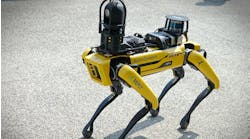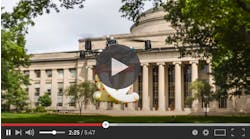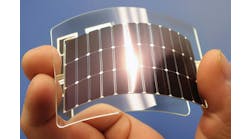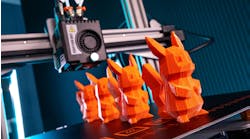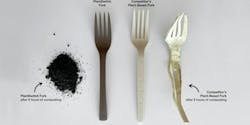Latest from Fun Innovations Friday
Fun Innovations Friday: The Company Replacing Petroleum-Based Plastics With Plants
Remember the paper straw craze? There was a lot of commotion around saving marine wildlife by refusing plastic straws. A lot of companies even stopped providing plastic straws altogether and only offered paper straws. But let's be honest, paper straws leave something to be desired. No one likes going to take a sip of their drink and have wet, soggy paper touch their lips.
A year or two ago, the grocery stores in my area stopped offering plastic bags. You could either use the paper bags or your reusable bags. Honestly, I love reusable bags just for the fact you can fit so much more in them, they don't break, and you end up taking way fewer trips from the car to the house.
Another area that has been trying to reduce single-use plastics is utensils and packaging by using biodegradable plastics or recycled plastics.
However, none of these areas where we tried to remove single-use plastics from the equation were truly successful. And that's because trying to replace petroleum-based plastic is actually pretty hard. For one, it's hard to correctly replicate the feel, flexibility, and durability that plastic provides. There's also the issue of price discrepancies.
Why the consistent push to replace plastic? The problem lies in the fact that single-use plastics are one of the biggest environmental threats, polluting the planet, overwhelming landfills, and taking 1,000 years to break down.
But replicating feel and chemical makeup along with handling price aren't the only issues standing in the way. The biggest barrier to bioplastic adoption has been corporations not investing in the new machinery that's required to process this new form of plant-based plastic. They don't want the large expense of investing in new machinery to accommodate a plant-derived plastic material.
Meet Dillion Baxter and Maxime Blandin, co-founders of PlantSwitch, a company that has created a bioplastic material that solves both barriers to mass commercial adoption of bioplastics.
PlantSwitch is a plant-based bioplastic that is cost-equivalent to petroleum-based plastics because it's a drop-in solution. The bioplastic pellets are the first bioplastic that works well with current plastic processing machinery.
The material also looks, feels, and mimics petroleum plastic, beautifully. Best of all, it biodegrades in a public landfill in only a matter of months.
According to the founders, they found that when placed in a countertop home composting bin, PlantSwitch single-use bioplastic items break down completely in just 8 hours. It's also the only bioplastic ever brought to market that is easily compostable in a home composting bin and doesn’t need to be placed in an industrial composting bin.
Here's how they do it:
- Agricultural Residues: Leftovers of major food production, such as rice hulls, wheat straw, and more are used as they have little to no value, so PlantSwitch's process gives them an important second life, reducing waste.
- Biopolymer Production: The company's proprietary technology converts these feedstocks into a biopolymer resin which can then be used to make the majority of plastic products.
- Finished Products: The resin is a drop-in solution with existing plastic machinery, allowing plastic manufacturers to seamlessly switch to the plant-based material.
- Composting: Once the product has been used, it can be disposed of in your backyard or home compost, where it will break down in just a few months. That compost can then be used to grow more of these wonderful materials.
The company recently launched its U.S.-based manufacturing facility, located in Sanford, North Carolina, giving it the infrastructure to manufacture more than 50 million pounds per year of its environmentally sound material.
Under Baxter’s leadership as CEO, PlantSwitch has raised a total of $17.5 million in working capital, to date. “Our goal is to turn 1 billion pounds of plants into our bioplastic material over the next decade,” shares Baxter.
Sysco and US Foods have converted to PlantSwitch for their plastic needs, and the company is currently in negotiations to convert major international fast food chains, cosmetics brands, and national pharmacy chains over to PlantSwitch bioplastics in 2024.
“For a truly sustainable material, it should be able to biodegrade on its own, leaving behind no toxic chemicals or microplastics. PlantSwitch meets these criteria,” explains Baxter.
Currently, PlantSwitch is serving the industries of straws, forks, knives, spoons, and cups; makeup containers, lipstick tubes, closures, and more; and bottles, bottle caps, toothbrushes, coffee pods, and more.
So, maybe this effort will finally start solving the issue of replacing petroleum-based plastics for single-use utensils, packaging, and more.
Fun Innovations Friday
Created by the editors of New Equipment Digest and Plant Services, Fun Innovations Friday is a feel-good blog that showcases how advances in science, math, engineering, and technology are making our world more whimsical. Here’s another post that is guaranteed to brighten your day.
Turn Your Manufacturing Defects into Profit: How Sweethearts Rebranded its Blurry Conversation Hearts
For a limited time, the company is offering Situationship Boxes, which feature blurry, misprinted candies that are as hard to read as a real situationship.
